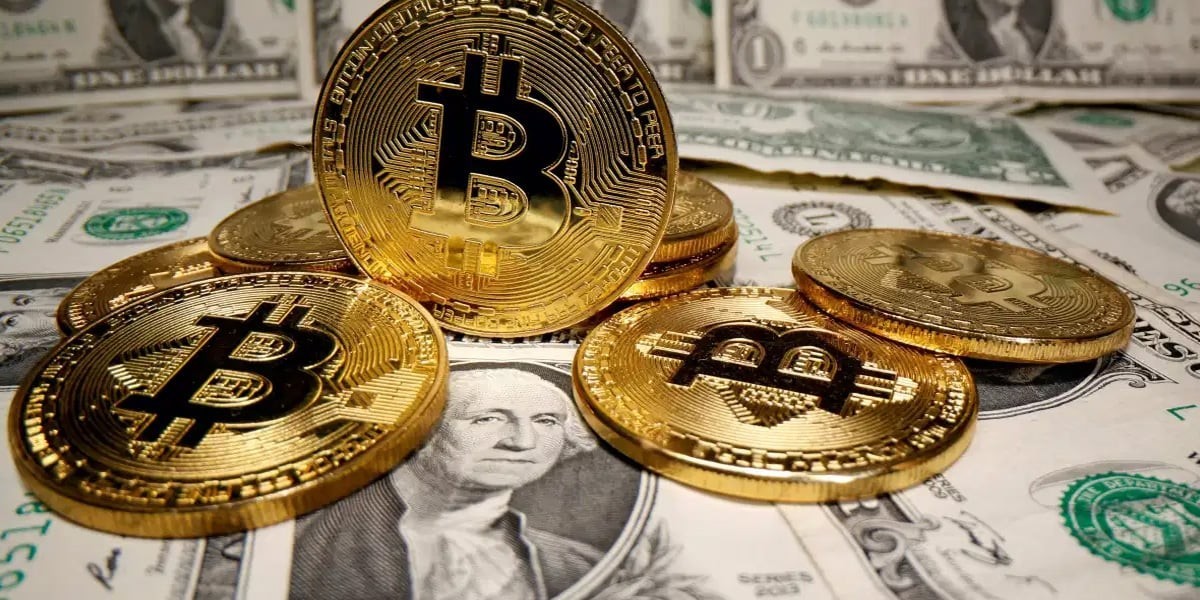Bitcoin (BTC) is one of the most popular cryptocurrencies in the world. Since its inception in 2009, it has transformed the way people think about money and digital assets. BTC operates on a decentralized network, meaning it isn't controlled by any single entity like a government or bank. This unique feature, along with its limited supply, has made Bitcoin a valuable and sought-after asset. For many, understanding how to convert BTC to USD (U.S. Dollar) is crucial, especially if they want to use their digital currency in everyday transactions or cash out their investment.
Converting BTC to USD involves exchanging Bitcoin for its equivalent value in U.S. dollars. This process can be done through various platforms like cryptocurrency exchanges, peer-to-peer platforms, or Bitcoin ATMs. The conversion rate between BTC and USD can fluctuate significantly due to various factors, making it essential to stay informed. Whether you're a seasoned investor or just getting started with cryptocurrencies, this guide will provide you with everything you need to know about BTC to USD conversion.
Factors Influencing BTC to USD Conversion Rate
Market Demand and Supply
The conversion rate of BTC to USD is heavily influenced by the principles of demand and supply. When more people are looking to buy Bitcoin, the demand increases, and so does its price. Conversely, when more people are selling Bitcoin, the supply increases, leading to a potential drop in price. These fluctuations can happen rapidly and are often driven by market sentiment, news, and overall interest in cryptocurrencies. For example, if a major company announces that it will start accepting Bitcoin as payment, demand may surge, driving the price up. Understanding these dynamics is essential for anyone looking to convert BTC to USD at an optimal rate.
Global Economic Factors
Global economic conditions also play a significant role in determining the BTC to USD conversion rate. Economic instability, inflation, and changes in monetary policies can lead to fluctuations in the value of Bitcoin relative to the U.S. dollar. For instance, during times of economic uncertainty, many investors may turn to Bitcoin as a "safe-haven" asset, similar to gold, driving up its price. On the other hand, a strong U.S. dollar or a robust global economy might reduce the demand for Bitcoin, leading to lower conversion rates. Keeping an eye on global economic trends can help you make informed decisions when converting BTC to USD.
Regulatory Environment
The regulatory environment surrounding cryptocurrencies can significantly impact the BTC to USD conversion rate. Governments and financial institutions around the world have varying approaches to regulating Bitcoin and other digital assets. Some countries have embraced cryptocurrencies, while others have imposed strict regulations or outright bans. These regulatory actions can influence investor confidence and, consequently, the value of Bitcoin. For example, positive news about cryptocurrency regulation in a major economy like the United States can boost Bitcoin's price, while negative news, such as a ban or restrictive regulation, can lead to a price drop. Understanding the regulatory landscape is crucial for anyone involved in BTC to USD conversion.
Technological Developments
Technological advancements in the blockchain and cryptocurrency space can also affect the BTC to USD conversion rate. Innovations such as improvements in Bitcoin's scalability, security, or adoption by mainstream financial institutions can lead to increased demand for BTC, driving up its value. Additionally, the development of new applications, such as decentralized finance (DeFi) platforms or Bitcoin-based financial products, can create more use cases for Bitcoin, further increasing its demand and price. Staying informed about technological trends in the cryptocurrency world can help you anticipate changes in the BTC to USD conversion rate.
How to Convert BTC to USD
Using Cryptocurrency Exchanges
Cryptocurrency exchanges are one of the most popular methods for converting BTC to USD. These platforms allow users to buy, sell, and trade cryptocurrencies, including Bitcoin, for various fiat currencies like the U.S. dollar. To convert BTC to USD on an exchange, you typically need to create an account, deposit your Bitcoin, and place a sell order. The exchange will then match your order with a buyer, and once the transaction is complete, you'll receive the equivalent amount in USD, which can be withdrawn to your bank account. Some popular exchanges include Coinbase, Binance, and Kraken. Each platform may have different fees, security measures, and user interfaces, so it's important to choose one that fits your needs.
Peer-to-Peer Platforms
Peer-to-peer (P2P) platforms offer an alternative way to convert BTC to USD by connecting buyers and sellers directly. On these platforms, you can list your Bitcoin for sale, and potential buyers will make offers based on the current market rate or their personal preferences. P2P platforms often provide more flexibility in terms of payment methods, such as bank transfers, PayPal, or even cash. However, it's important to be cautious and use platforms with strong security measures and user verification to avoid scams. Some well-known P2P platforms include LocalBitcoins and Paxful. While P2P platforms can offer better rates and more privacy, they may also involve higher risks compared to traditional exchanges.
Cryptocurrency ATMs
Cryptocurrency ATMs, or Bitcoin ATMs, are another convenient way to convert BTC to USD. These machines allow you to deposit Bitcoin and withdraw cash in U.S. dollars on the spot. To use a Bitcoin ATM, you'll typically need to scan a QR code from your Bitcoin wallet, confirm the amount you want to convert, and then receive the cash. Bitcoin ATMs are available in many cities around the world, and they provide a quick and easy way to convert BTC to USD without the need for an online account. However, it's worth noting that Bitcoin ATMs often charge higher fees compared to online exchanges, and the conversion rate may not be as favorable.
Tools and Resources for BTC to USD Conversion
Real-Time Conversion Calculators
Real-time conversion calculators are essential tools for anyone looking to convert BTC to USD. These calculators provide up-to-the-minute exchange rates, allowing you to see how much your Bitcoin is worth in U.S. dollars at any given moment. Popular cryptocurrency websites and apps, such as CoinMarketCap and CoinGecko, offer these calculators for free. By entering the amount of BTC you want to convert, you'll instantly see its equivalent value in USD. These tools are especially useful in a volatile market where prices can change rapidly. Using a real-time conversion calculator can help you make informed decisions and ensure you're getting the best possible rate when converting BTC to USD.
Tracking BTC to USD Trends
Keeping track of BTC to USD trends is crucial for maximizing your conversion results. The value of Bitcoin can fluctuate significantly due to various factors, and staying informed about these changes can help you time your conversions for optimal returns. Many cryptocurrency news websites, mobile apps, and financial platforms offer tools to track BTC to USD trends over different time frames, from hourly updates to long-term historical data. By analyzing these trends, you can identify patterns, understand market sentiment, and make predictions about future price movements. Staying updated on BTC to USD trends is essential for anyone involved in cryptocurrency trading or investing.
Risks and Considerations When Converting BTC to USD
Volatility of Bitcoin
Bitcoin is known for its volatility, which means its value can change dramatically in a short period. This volatility is one of the biggest risks when converting BTC to USD. For example, the value of Bitcoin could drop significantly between the time you decide to sell and the time the transaction is completed, leading to lower returns. On the other hand, Bitcoin's price could also rise, increasing your potential gains. Understanding the volatile nature of Bitcoin is crucial for anyone involved in cryptocurrency. To mitigate this risk, some traders use strategies like setting limit orders or converting small amounts of BTC to USD over time instead of all at once.
Security Concerns
Security is another important consideration when converting BTC to USD. Cryptocurrency transactions are irreversible, meaning once the transaction is complete, it cannot be undone. This makes it essential to ensure that you're using secure platforms for your conversions. Always use exchanges, P2P platforms, or ATMs with strong security measures, such as two-factor authentication and encryption. Additionally, be cautious of phishing scams and other fraudulent schemes that target cryptocurrency users. Keeping your Bitcoin in a secure wallet, preferably a hardware wallet, until you're ready to convert it to USD can also help protect your assets.
Tax Implications
Converting BTC to USD can have tax implications depending on your country's regulations. In many jurisdictions, converting Bitcoin to fiat currency is considered a taxable event, meaning you may need to report the transaction and pay capital gains tax on any profit you make. The amount of tax you owe will depend on how long you've held the Bitcoin and the difference between the purchase price and the sale price. It's important to keep detailed records of your transactions and consult with a tax professional to ensure compliance with local laws. Failing to report your BTC to USD conversions could result in penalties or other legal consequences.
Future Outlook of BTC to USD Conversion
Predictions for BTC’s Future Value
The future value of Bitcoin is a topic of much speculation and debate among experts. Some believe that Bitcoin's price will continue to rise as more people adopt it as a store of value and as an alternative to traditional currencies. Others predict that increased regulation or technological challenges could limit its growth. Regardless of the predictions, it's clear that Bitcoin will continue to be a major player in the cryptocurrency space. Investors and traders should stay informed about market trends, technological developments, and regulatory changes to make educated decisions about converting BTC to USD in the future.
Potential Changes in the BTC to USD Conversion Process
The process of converting BTC to USD may evolve as the cryptocurrency industry continues to develop. Innovations in blockchain technology, such as faster transaction times and lower fees, could make conversions more efficient. Additionally, increased adoption of Bitcoin by mainstream financial institutions and businesses could lead to more stable conversion rates and a wider range of options for converting BTC to USD. However, it's also possible that new regulations or challenges could arise, impacting the ease and cost of conversions. Staying informed about industry developments will be key to navigating the future of BTC to USD conversion.
Conclusion
Understanding conversion is essential btc to usd for anyone involved in Bitcoin trading or investing. By staying informed about the factors that influence conversion rates, using reliable tools and platforms, and being aware of the risks and considerations, you can make informed decisions and maximize your returns. As the cryptocurrency landscape continues to evolve, staying updated on the latest trends and developments will be crucial for success. Whether you're converting BTC to USD for everyday transactions or as part of a larger investment strategy, knowledge and caution are your best allies.








